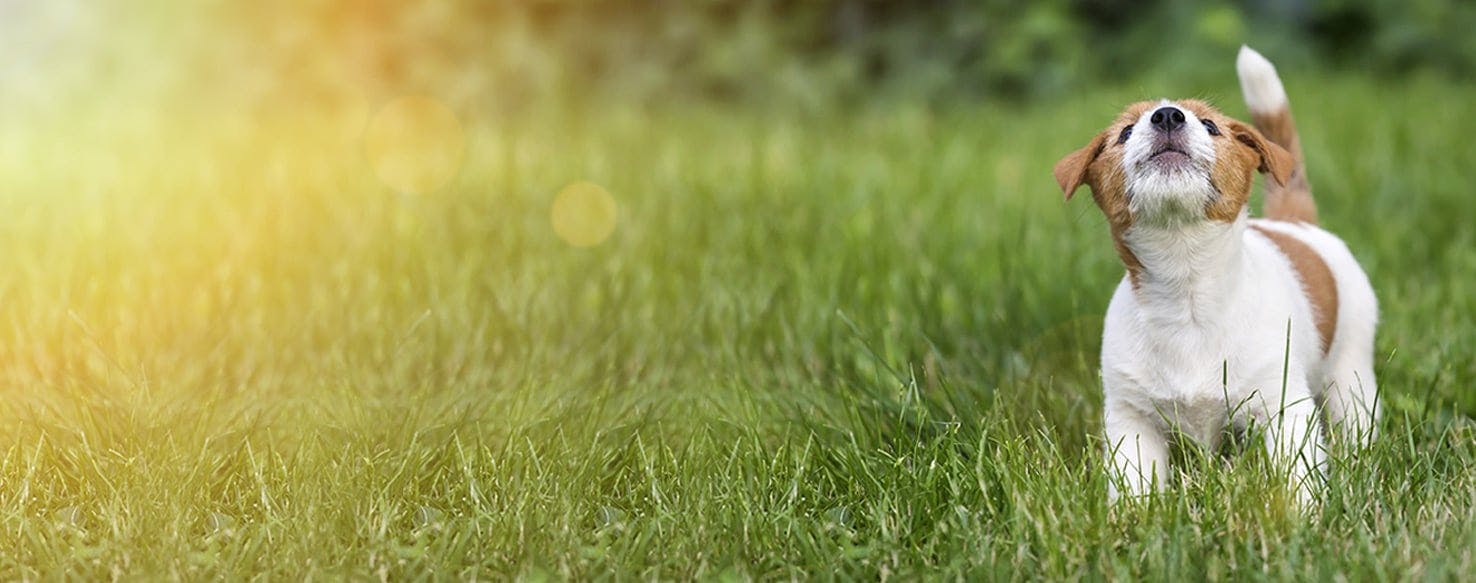- Home
- The Daily Wag!
- Behavior
- Why Do Dogs Make Pig Noises
Why Do Dogs Make Pig Noises

Common
Normal
Introduction
Your once normal sounding dog is doing his thing, as usual; walking, playing, and getting your attention. But he is not barking, he’s making pig sounds. There are oinks and grunts and some other strange noises that are perturbing. His pig impressions are spot on. Is your dog trying to sing Old McDonald, but hasn’t made it through the farm yet? Did you just watch a movie about a beloved pig and he is jealous because of the attention you gave that pig? Is he really sick and can’t breathe? Pig noises can be very concerning so what does it mean when Fido is communicating with you like Wilbur from Charlotte's Web?
The Root of the Behavior
When you first hear pig noises from your dog, it’s common to be concerned, but most of the time, it isn't concerning. These sounds of grunting or oinking are actually called reverse sneezing. Reverse sneezing is when a dog’s throat muscles spasm and soft palate are irritated. The dog will breathe in too much air through his nose and thus begin the worrisome sound of your dog sounding like a pig. His neck will stretch out, his chest will expand, and his trachea will narrow. All of this combined gives you the impression of pig noises that could sound like hacking, coughing, wheezing or a series of other alarming sounds. When your dog is making these strange sounds, it might seem distressing, but most of the time, your dog is okay. It’s the same as him sneezing, just noisier. While all breeds can experience reverse sneezing, smaller breeds and brachycephalic breeds experience it more often.
Brachycephalic breeds are those dogs with short noses and flat faces, like Pugs, Chow Chows, or English Bull Mastiffs. Smaller breeds who experience this oinking sound more frequently include Beagles and Yorkies. These breeds have a smaller throat and nose structure, making them more susceptible to sounding like little piggies. Occasionally the pig-like noise your dog makes might be caused by something else. If you notice any excessive reverse sneezing, it could be from allergies, infection, nasal mites, or something stuck in his nose like a blade of grass. Another reason for such noises could be a collapsed trachea, which is more commonly seen in small dogs, especially Yorkies. A collapsed trachea is when part of the trachea, which allows your dog to breathe, gets obstructed by a tracheal ring collapsing. This blocks the airway, which results in your dog’s honking or oinking. Often a collapsed trachea is accompanied by other symptoms, such as a lack of interest in exercise or labored breathing.
Need advice about your pet's health?
Get answers fast from a veterinary professional 24/7 in the Wag! App.
Get Vet ChatEncouraging the Behavior
Some dogs experience reverse sneezing their whole lives, while others don’t experience it until they are older, but often it is temporary and doesn’t last very long. Dogs making funny noises is concerning, but more often than not, your dog does not need to go to the vet. He is doing something natural to get rid of something unwanted in his body. The sounds he makes might be scary, but he should be okay. Your dog’s episode of reverse sneezing shouldn’t last very long, but if you want to reduce his time spent reverse sneezing, you can try massaging his throat, softly blowing in his face, or hold his nostrils closed for a few seconds. This might help get whatever is stuck in his passageway to come out and hopefully shorten his reverse sneezing episode.
However, if you notice your dog is having a lot of episodes or excessively long ones, it may be time to call a veterinary professional. Your veterinarian can determine what the problem is and if your dog needs treatment. If you have a smaller breed like a Yorkie and notice this happening more frequently, it is a safe bet to call the veterinarian so he can determine if it is a collapsed trachea or not.
Other Solutions and Considerations
Take notice of when your pup starts to oink or grunt. It might happen because he’s excited, pulling on the leash, smelled strong perfumes or scents, or he simply has allergies. Have him wear a harness and keep him away from perfumes if you notice that he only oinks in those situations. When in doubt, call your veterinarian and ask if you should come in with your pup. If he has something stuck in a breathing passageway, the veterinarian can usually remove it. If he has allergies, your veterinarian might prescribe an antihistamine to alleviate some of them and reduce these reverse sneezing episodes. If it is a nasal mite, the veterinarian can prescribe medication for your dog. He might take some x-rays to diagnose what is happening, too.
Conclusion
More often than not, your dog’s pig impressions will be a short-lived show and will not require him to be rushed to the veterinarian. Keep an eye on him and give him a little love after the episode passes. A reverse sneezing episode does not seem comfortable and he could use a snuggle or two afterward to let him know he is okay.
Written by a Miniature Yorkie lover Stephanie Molkentin
Veterinary reviewed by:
Published: 03/23/2018, edited: 01/30/2020
More articles by Stephanie Molkentin
